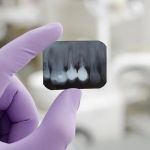Why Do Oral Ulcers Cause Pain or a Burning Sensation?
Oral ulcers, often referred to as mouth ulcers, are a common but distressing condition affecting individuals worldwide. In the United States, a significant portion of the population experiences these painful lesions at some point in their lives. Characterized by a painful or burning sensation, these ulcers can significantly impact one's quality of life, affecting eating, speaking, and even sleeping. While most ulcers heal on their own within a couple of weeks, the discomfort they cause can be overwhelming. Understanding the underlying reasons for the pain and burning sensation associated with oral ulcers provides a pathway to effective management and relief.
The Anatomy of Oral Ulcers
The discomfort from oral ulcers primarily stems from their location and the physiological processes involved in their development. Oral ulcers appear when the thin, protective layer of cells lining the mouth breaks down, exposing the sensitive underlying tissues and nerve endings. This exposure results in heightened sensitivity and pain. Furthermore, the open sore becomes a site for inflammation, as the body mobilizes its immune response to heal the area, leading to swelling and redness that contribute to the sensation of pain.
Role of Nerve Endings and Inflammation
One of the principal reasons for the intense pain from oral ulcers is the concentration of nerve endings in the oral cavity. These nerves are critical for sensing taste, temperature, and texture, but they also transmit pain signals. When an ulcer forms, these nerve endings become exposed and irritated, especially during activities like eating or speaking that apply pressure or stimuli to the area. Inflammatory chemicals released by the body further exacerbate this response. Compounds such as histamine and prostaglandins make nerve endings more sensitive, intensifying the pain and creating a burning sensation. Scientific studies highlight that anti-inflammatory treatments can substantially reduce pain levels by targeting these compounds, demonstrating the direct link between inflammation and ulcer discomfort.
Contributing Factors to Ulcer Sensitivity
Several factors can influence the degree of pain experienced from oral ulcers. These include the size and location of the ulcer, underlying health conditions, and even dietary habits. Larger ulcers naturally expose more nerve endings, leading to greater discomfort. Ulcers located on mobile parts of the mouth, such as the tongue or inner cheeks, are often more painful due to constant movement. Additionally, conditions like stress, hormonal changes, and nutritional deficiencies (e.g., iron, vitamin B12) can exacerbate the frequency and severity of ulcer formation. Foods high in acid or spice can also irritate existing ulcers, prolonging healing and compounding the burning sensation experienced.
Management and Relief Strategies
Effective management of oral ulcers involves a combination of lifestyle modifications and medical interventions tailored to reduce pain and promote healing. For many, topical anesthetics and antimicrobial mouthwashes can provide short-term relief by numbing the area and reducing bacterial exposure. Beyond immediate relief, addressing underlying causes is crucial. Ensuring a balanced diet rich in essential vitamins and minerals, coupled with stress management techniques, can prevent frequent occurrences. In persistent or severe cases, professional evaluation by a dental specialist like those at Dentistry Toothtruth is recommended to rule out underlying systemic conditions and receive tailored treatment guidance.
Conclusion: Towards a Pain-Free Future
Understanding why oral ulcers cause such significant pain and a burning sensation is critical in both prevention and treatment. By focusing on the physiology of ulcer formation and integrating evidence-based management strategies, individuals can substantially reduce discomfort and improve recovery times. Proactively maintaining oral health and seeking professional care when necessary can lead to a pain-free future. For more information and resources on managing oral health, visit Dentistry Toothtruth, where experts are ready to guide you to relief.




 Valleywise Community Health Center - Mesa3.0 (252 review)
Valleywise Community Health Center - Mesa3.0 (252 review) All Smile Dental Center3.0 (31 review)
All Smile Dental Center3.0 (31 review) Vaksman Dental Group4.0 (309 review)
Vaksman Dental Group4.0 (309 review) Advanced Dental Implant Center "Comfort Dental"4.0 (201 review)
Advanced Dental Implant Center "Comfort Dental"4.0 (201 review) Oasis Dentistry4.0 (78 review)
Oasis Dentistry4.0 (78 review) Steven J. Moravec, DDS, MS4.0 (189 review)
Steven J. Moravec, DDS, MS4.0 (189 review) The Importance of Oral Health Education During Pregnancy for a Healthy Pregnancy
The Importance of Oral Health Education During Pregnancy for a Healthy Pregnancy Best Tips for Brushing Your Teeth Properly for Healthy Gums: Essential Techniques for Oral Health
Best Tips for Brushing Your Teeth Properly for Healthy Gums: Essential Techniques for Oral Health Why Skipping Dental Checkups Can Lead to Bigger Oral Health Problems
Why Skipping Dental Checkups Can Lead to Bigger Oral Health Problems Advantages of Porcelain Dental Restorations
Advantages of Porcelain Dental Restorations How Can Diabetes Cause Tooth and Gum Problems? Preventing and Managing Oral Health Issues
How Can Diabetes Cause Tooth and Gum Problems? Preventing and Managing Oral Health Issues Healthy Habits for Promoting Good Oral Health and Hygiene: Tips for a Healthy Smile
Healthy Habits for Promoting Good Oral Health and Hygiene: Tips for a Healthy Smile